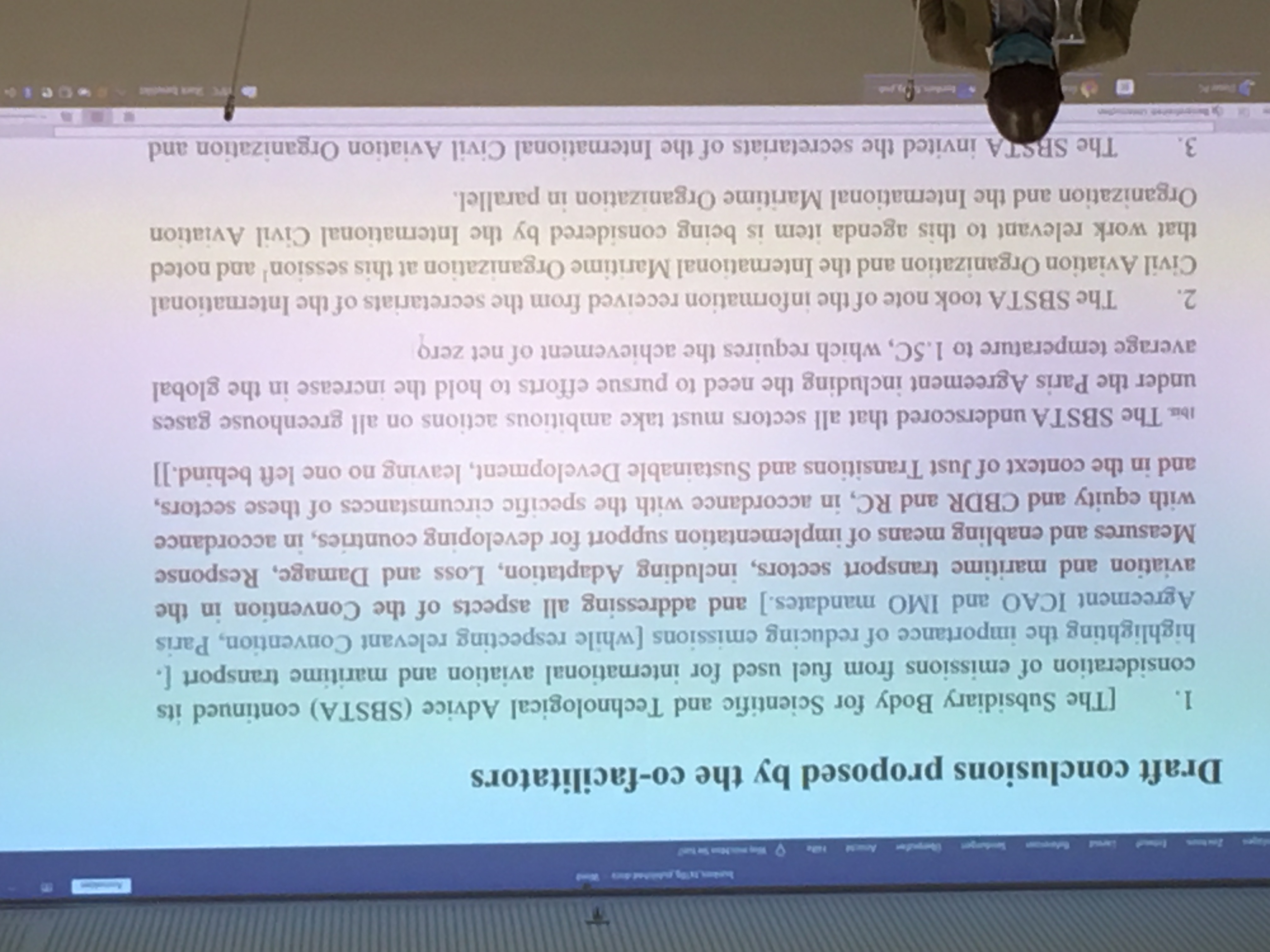[HD-8]
Sore forearms from bouldering! Sore neck from typing! Sore back from not enough yoga! Oh, those Hofgarten Days, friends, they get to you. But we’re really, really close to the end. Bernard Soubry here with your eighth email.

We came back to the conference centre to find that we are now at that point in technical negotiations where nothing is going to get done. This is not cynical; it’s fact. Yesterday, I covered five hours of a possible seven hours of negotiations, and here is what happened in each room:
Gender and climate change: trying to review the Gender Action Plan. Last session before it has to go into the plenary for approval. Parties go through the whole text paragraph by paragraph. One disagrees about a suggested paragraph. Another asks what “intersectionality” means and feels uncomfortable using it. Another says, “this plan is great, but where’s the money?” Someone says, well, we know where the money is, but we can only talk about it bilaterally—ie., outside the room. They set up bilaterals. Sixteen other parties are interested in the bilaterals, too. The text is not approved.
The Global Goal on Adaptation: Trying to review draft text that is supposed to capture everyone’s views from the previous session. Everyone says a variation of, “this text is terrible, and my views aren’t captured here.” One party group says, we have some suggestions, and starts just reading out new text to replace it. Point of order, says someone: we should have this on the screen so we can read it. The Secretariat projects the text suggestions and the party group keeps reading. Point of order: we won’t have time to give everyone a turn and if you type in only one group’s suggestions, those suggestions will have an implied legal status. Secretariat agrees, asks for written submissions. Party group continues live suggestions. Point of order. Point of order. Point of order.
Bunker fuels: Supposed to figure out how exactly the Paris Agreement can help reduce emissions from aviation (which is controlled by the International Commercial Aviation Organization) and global shipping (which is controlled by the International Maritime Organization). There are three paragraphs to approve. Opening salvo is: this isn’t working, here’s another paragraph instead. Forty minutes later, total dumpster fire. No text is approved.
Observers’ final meeting with the outgoing Executive Secretary: Actually quite moving and beautiful, but not actually a negotiation. No text is approved.

The outside view is that this is an insane process from which no good can come. The inside view is that this is normal. It isn’t that countries have purposely decided to be stupid and mule-headed; it’s that they have run out of mandate.
Negotiators have no will of their own beyond the parameters they have been given. They are handed a mandate by their ministries before the conference starts, told to get as much as they can, and left to their own devices. And if the mandates are narrow enough, you get situations like these: everyone has explained their views, none of those views are going to fit together, so the best that anyone can do is make sure that they’ve been very clear. At least that way no one gets fired.
Effectively: cut a bunch of wood, showed up to the site, won’t fit, time to go back to the lumber yard. This is a good way to build a house. Is it a good way to manage a climate regime?
God, but I don’t know. I think of part of my job as understanding all the perspectives present in any given room at any given time. I think I’m pretty good at it. But digging into these mindsets is dangerous, because you start to empathize with them, and they start to make sense.
Of course, in the bounds of the Convention, there is some sense in saying, ok, we’ve exhausted our options, so let’s spin our wheels til we go home. But--then you start to think about this as a game to be won, just trying to get the best possible outcome… instead of the necessary outcome, the one which is dictated by physics, and policy, and human life. The problem with things making sense is that they stop being human.
Just a bunch of us humans, people with flesh and children, sitting in big halls and agreeing on crumbs. Or doing the best they can. Or both. Not sure. Not sure.
Not sure,
B